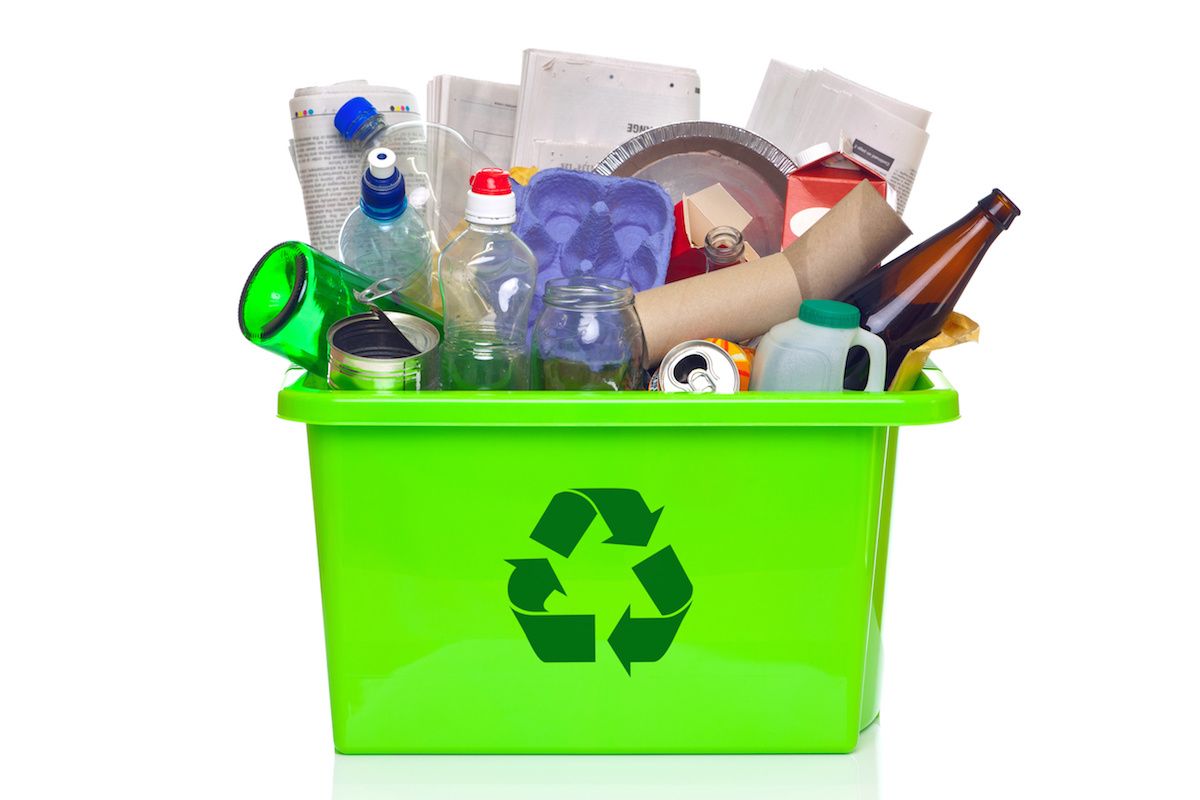"Aggressive" Recycling at Roswell Park
With more than 3,400 employees, plus 500 visitors and as many as 1,350 patients on campus every day, Roswell Park generates a lot of waste — paper, cans, bottles, cooking grease, printer cartridges, batteries, cardboard, medical equipment and many other items are discarded in the hospital, offices and laboratories. What happens to those things after they’re tossed out?
Roswell Park has been “aggressively recycling for years,” says Steven Wright, Vice President for Facilities Management. “In fact, we’ve established such strict policies with our refuse contractors that they are not paid unless they comply with our recycling standards.”
Across campus, waste of all kinds is collected for recycling, including 300,000 pounds of paper and up to 200,000 pounds of iron and steel every year. From fluorescent light bulbs and cell phones to refrigeration gases and wooden pallets, many, many items are converted into something new or passed along for reuse or recycling.
What About Bottles and Cans?
Patients, visitors and employees often ask for more recycling bins on campus for bottles and cans. Wright says collecting beverage containers for recycling can be challenging in a hospital setting. If they’re not rinsed thoroughly, they can attract insects and provide a breeding ground for bacteria — a special concern for cancer patients with weakened immune systems. To meet Roswell Park’s strict standards for infection control, recycling receptacles for bottles and cans are located only in the hospital’s Sunflower Café, where they can be monitored and emptied frequently.
If you aren’t near the Sunflower Café when you need to dispose of cans and bottles, we ask that you follow the “carry out” rule of hikers and campers: If possible, please take the containers home and dispose of them with your other household recyclables.
Never miss another Cancer Talk blog!
Sign up to receive our monthly Cancer Talk e-newsletter.
Sign up!Generating Energy
The waste from Roswell Park that cannot be recycled is transported to Covanta, a company in Niagara Falls, New York, where it’s combined with waste from other sources and burned to produce steam-generated electricity. “For every ton of waste processed at Covanta, we avoid the need to import nearly one barrel of oil or use a quarter-ton of coal,” notes Wright. He adds that across the nation, the same waste-to-energy process converts 14% of all municipal solid waste into enough electricity to power 2.8 million homes.
At the end of the burning process, small amounts of metals that remain in the incinerator are collected and sent to metal-recycling mills, leaving behind only ash. Out of all the trash that leaves Roswell Park, that inert ash — which, by weight, is only about 5% of the municipal waste we generate — is the only material that winds up in the municipal waste landfill.
Greener and Greener
A group of Roswell Park employees meets periodically to identify new ways to make our waste disposal even greener and more efficient. “We recycle on a large scale,” says Wright. “When individuals take ownership of their own recycling, the process really works.
“We’re all responsible for the care of our planet."
